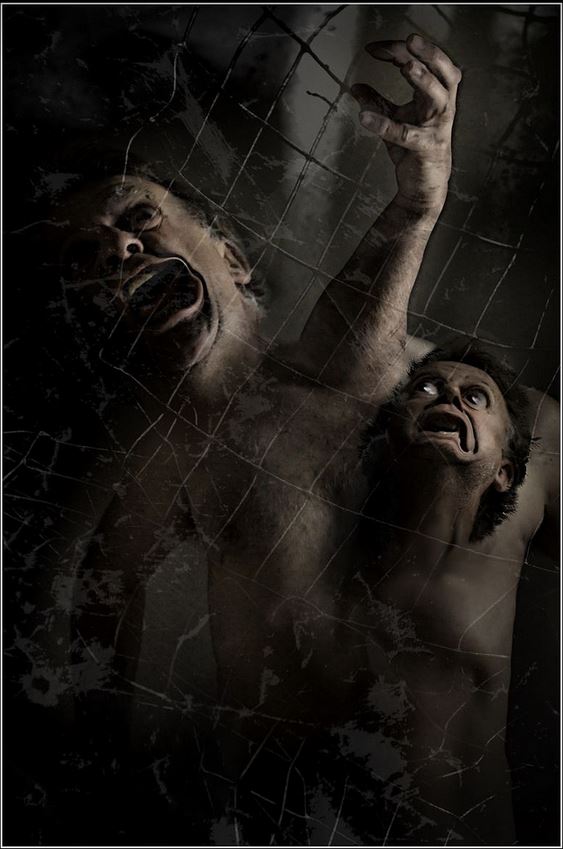Last time I set the stage for exploring different realms of the horror psychology, the biological, the psychological and the social. In this post we will explore the biological realm of the horror.
Horror in the Body
20th century horror author and pioneer H.P Lovecraft’s most oft quoted phrase begins with the following line “The oldest and strongest emotion of mankind is fear” (Lovecraft, 2011) Physiologically and evolutionarily speaking he was correct. The limbic system, the area of the brain that contains the amygdala, the part of the brain that controls much of what we think of as the fight-flight-freeze fear response, is one of the defining differences between mammals and reptiles.(Dubuc, 2002). This idea that horror is an emotion whose locus is the body is the mark of some of the earliest forms of horror, and its use still marks horror today. Examples of this would be Shelly’s Frankenstein, Stoker’s Dracula, or any of M.R. James’ ghost stories. All of these tales are still alive and well today and all of them deal with a horror of the organic being. Frankenstein is a literally the story of creating a horrific body, Dracula deals with the horrors that come out of the urges and fluids of a body, and the ghost stories show us the horror of what happens with the loss of a body.
This idea of organic horror, especially gothic horror, has been explored by literature professor Jack Morgan. He states that “Tales of terror turn upon threats to the body’s coherence, the failure of physiological adjustment and adaptation, the all too possible victory of the morbid forces” (Morgan, 1998 p. 63-64). Furthermore Morgan says “that in horror the ‘dieingness,’ as it were, of the human world is imaged forth, ritually recapitulated” (Morgan, 1998 p.64) Morgan offers a position that has some interesting applications, for him, horror is found when the body ceases to be coherent, when there is a failure to adapt or change, ending in death.
This idea of the necessity of the human organism to adapt and maintain is similar to the idea found in Capra’s(2014) work dealing with the concepts of morphogenesis and homeostasis. To briefly explicate, morphogenesis is the process by which an organism changes itself to adapt to the environmental context that it finds itself in. It is basically how the body and the environment interact. And homeostasis is the process by which an organism regulates itself so that its internal state remains constant, in other words how the body reacts to environment (Capra, 2014). Capra (2014) is arguing for a systems understanding how any organism, and the biological functions within the organism, are fundamentally tied to the environment that it finds itself in.
I would contend that body-in-horror is what happens when an organism suddenly finds itself isolated or alienated from the system it finds itself in; unable to adapt and waging a losing battle in trying to maintain homeostasis. One famous example of this idea in horror is Ridley Scott’s famous film Alien. In the story the hero, Ripley, is trapped with the alien monster in a spaceship orbiting an uninhabitable planet. The vacuum of space is uninhabitable, thus the need for the spaceship, a technological, rather than biological adaptation, but an adaptation none the less. However, the horror of the situation is that the ship is now also made uninhabitable by the presence of the alien. Ripley now finds herself alienated (pun fully intended) from the system and is trying to survive (homeostasis) in an environment that was once familiar but now holds something deeply sinister, and incompatible for maintaining the coherence of her organic body.
Another idea that stems into the body being a necessary agent of the experience of horror is the found in Freud. When Freud turned to horror he attempted to capture the word that best embodied the physical sensation that are felt when one is confronted with a terrible situation. He settled on the German word, Unheimlich, the Uncanny (Freud, 2003). Freud would position this as a feeling in the body dealing with uncertainty which deals, in part, with the power of others toward the destruction of one’s organs. For Freud this was indicative of the castration complex, stating “that it is the threat of being castrated in especial which excited a peculiarly violent and obscure emotion, ant that this emotion is what first gives the idea of losing other organs its intense colouring” (Freud, 2003). Perhaps it is useful for this discussion to position Freud’s theory, in a more Lacanian manner, and see castration as not as an actual threat to male genitalia, but rather seeing the phallus and “damage” to it as a stripping of power. From this one could rework Freud’s understanding of the uncanny as a sudden incomprehensible theft of power by a situation/circumstance in which one previously felt safe or in control.
To illustrate let us go back to our discussion of Alien. Ripley is aboard her spaceship, which was once home, and now it is not, although nothing about the environment has changed, her power has been removed from her by the creature, removing her ability to maintain homeostasis. She now falls under Morgan’s definition of having horror with an inability to adapt or adjust; she now faces the possibility or corporeal destruction and death. Like the thoughts of bodily death that went through my head when my cat jumped towards me, one can see that one part of the horror experience is body based. However it is not sufficient to explain the horror experience, let us now turn to the part of the experience that occupies the mind.
To be continued…coming up next the psychological realm…


